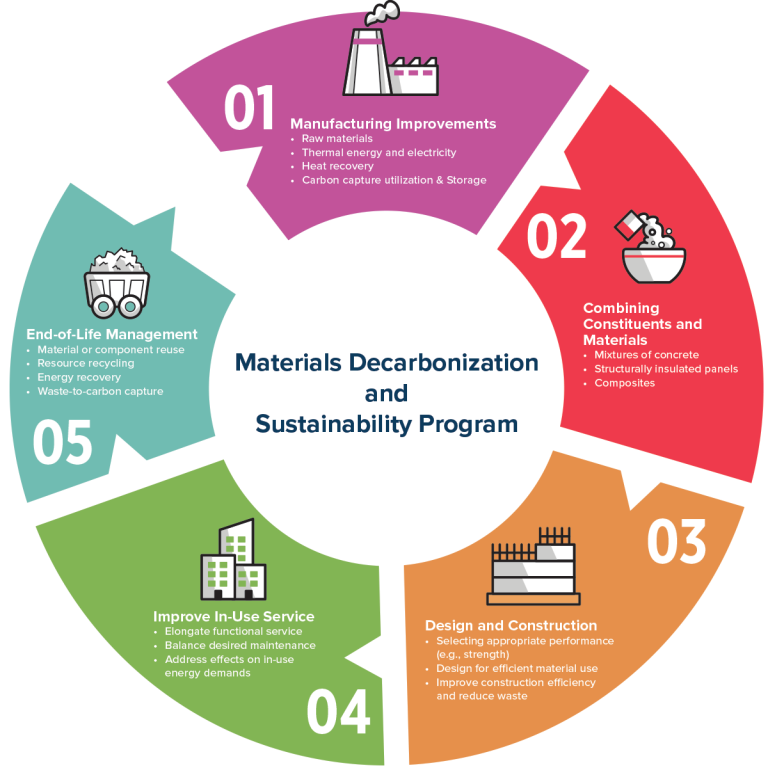Comprehensive approach to decarbonize building materials.
Our Mission
Our Mission
The UC Davis Materials Decarbonization and Sustainability Center (MDSC) conducts advanced research to address the complex challenges of decarbonizing building materials. Based at UC Davis, the center develops breakthrough technologies that balance materials performance with life cycle greenhouse gas emissions while translating research into actionable policy recommendations.
MDSC takes a life-cycle approach, examining the entire materials chain—from extraction and manufacturing to use, function, and end-of-life management. Research efforts focus on:
- Novel materials development to reduce carbon footprints
- Life-cycle environmental impacts of building materials
- Localized resource and community effects of material production
- Policy and economic frameworks for accelerating decarbonization
- Advancements in current practice, including novel construction methods and engineering code development
The center fosters collaboration across UC Davis, connecting researchers with industry, government, and nonprofit stakeholders to drive impactful solutions. By laying the foundation for transformative research, MDSC positions UC Davis as a national leader in sustainable building materials innovation.
MDSC is led by Professor Sabbie Miller of Civil and Environmental Engineering at UC Davis.


Achieving net-zero emissions is essential to mitigating the worst effects of climate change. Because reducing greenhouse gas (GHG) emissions alone is insufficient, carbon capture, utilization, and storage (CCUS) will be critical.
Materials production accounts for roughly 25% of global CO₂ emissions, with the majority coming from building materials. To decarbonize this sector, we need a deeper understanding of:
- Emissions sources and reduction mechanisms in materials production
- Strategies for decarbonizing conventional materials
- Engineering sustainable material alternatives
- Economic and policy tools to drive adoption
MDSC is dedicated to addressing these challenges through interdisciplinary research and real-world implementation.
